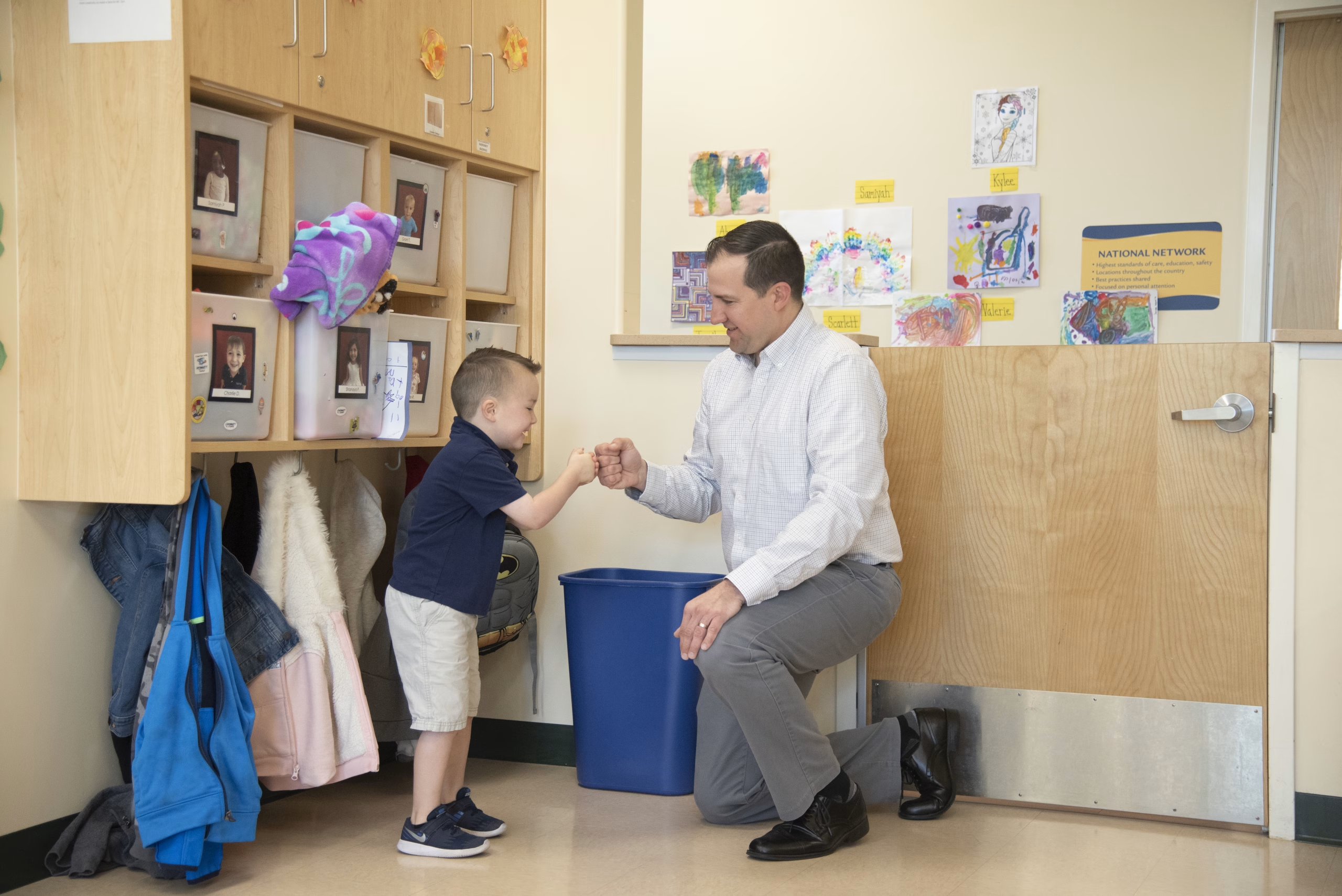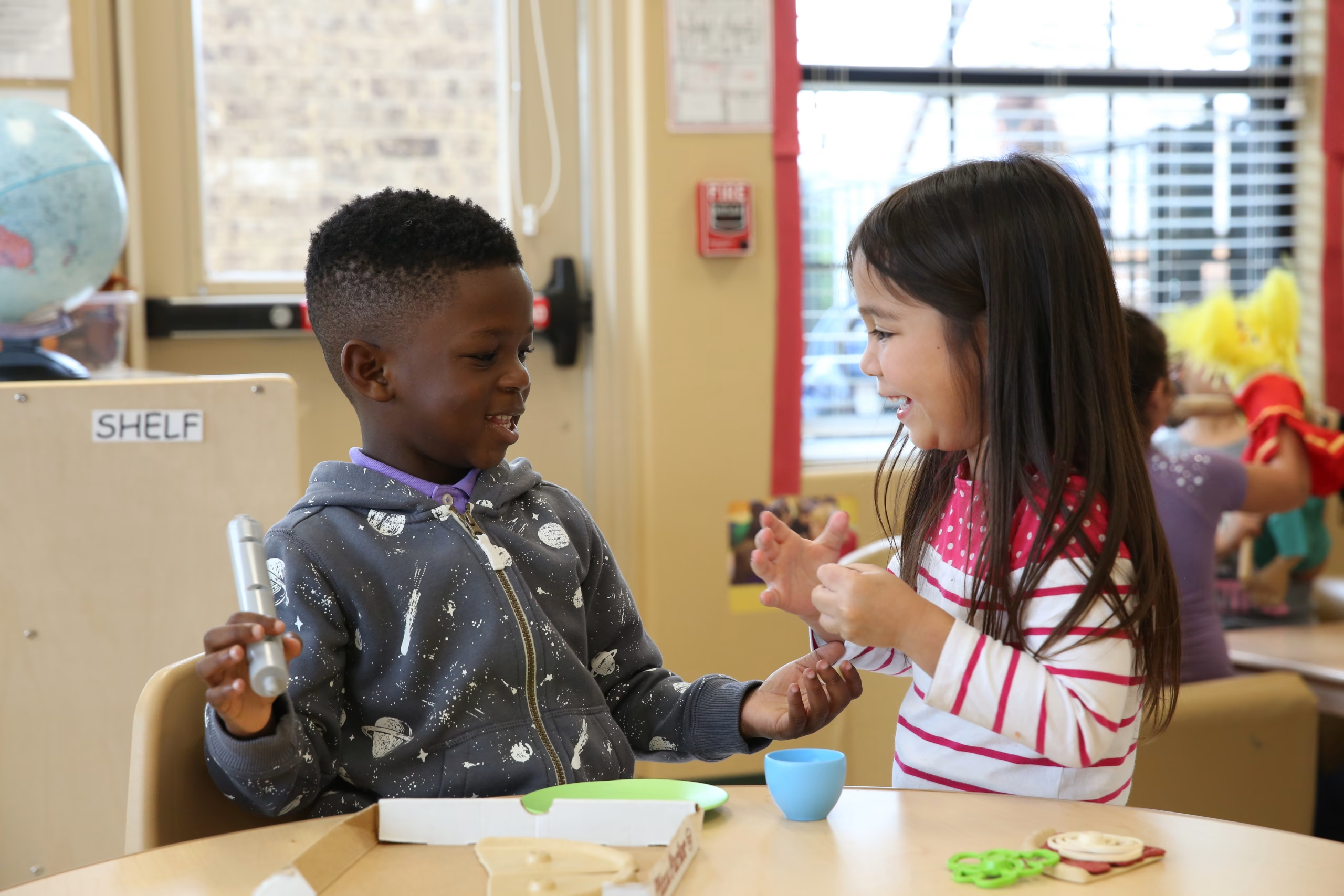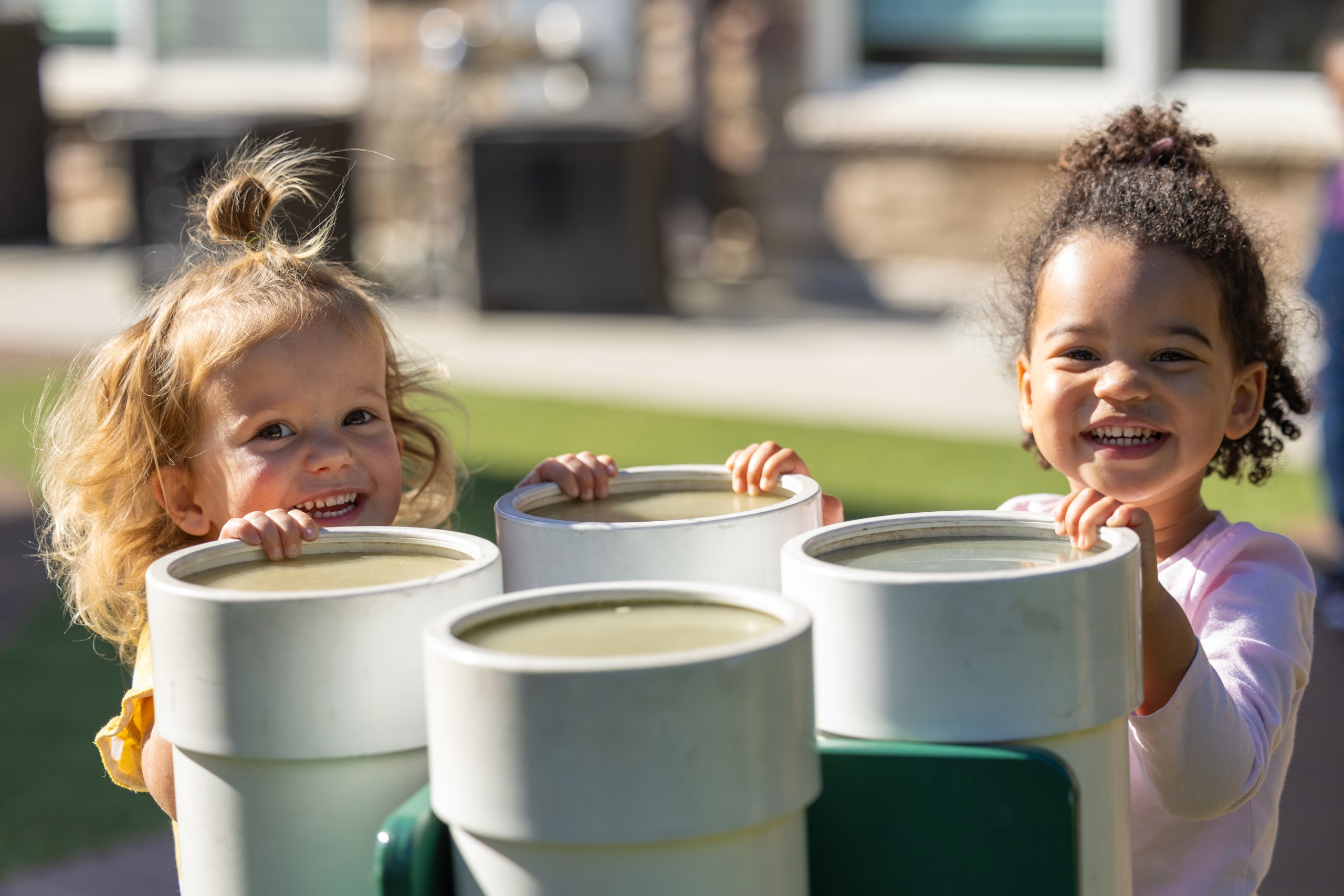

Question: What goes, “Oink, flop, oink, flop, oink, flop”?
Answer: A pig with a flat tire.
Jokes – even goofy ones – almost always put a smile on our faces. Jokes are one way we communicate humor – the ability to perceive and appreciate comedy in the world and within ourselves. Humor is one of many Character Education values incorporated into our Life Essentials® curriculum.
“Children find so many different things funny, from silly sounding words and bodily functions to songs and knock-knock jokes,” said Richard Peterson, Kiddie Academy’s Vice President for Education. “Adults have the opportunity to use comedy and humor as a teaching tool for children through stories, songs and poems. It is also appropriate to demonstrate for children how you can laugh at yourself when you make a mistake to ease the tension or frustration.”
Peterson points out that while it’s fun to laugh, smile and share a joke with others, humor may not work in every situation. “It’s important to have discussions about appropriate comedy and when it’s not acceptable to laugh at someone. For instance, if someone is hurt or if someone looks different.”
Humor can also contribute to short- and long-term health benefits. According to a post on the Mayo Clinic website, laughing can help:
- Relieve pain
- Activate your stress response
- Improve your mood
- Improve your immune system
Tongue twisters are another great way to share laughs. Here’s one called Betty Botter that many of our Academies use. Take turns trying to say it with your child:
- Betty Botter bought some butter, “but,” she said, “this butter’s bitter.
- If I put it in my batter, it will make my batter bitter,
- But a bit of better butter will but make my butter better.”
- So, she bought some better butter,
- And she put it in her batter
- And it made her batter better.
- Better, too, was Betty Botter!
For more fun, here is a list of suggested humorous books that you can read with your child:
“The Cat in the Hat,” by Dr. Seuss
“Green Eggs and Ham,” by Dr. Seuss
“A Chocolate Moose for Dinner,” by Fred Gwynne
“If You Have a Hat,” by Gerald Hawksley
“Big Al,” by Andrew Clements
“Double Trouble in Walla Walla,” by Andrew Clements
“Could Be Worse,” by James Stevenson
“The Seven Sneeezes,” by Golden Books and Bruce Ingman
Looking for more news you can use?
We would love to send you our free monthly newsletter, Parenting Essentials! You’ll receive a newsletter by e-mail, full of parenting advice, ideas and information, as well as articles about emerging trends in educational child care.





